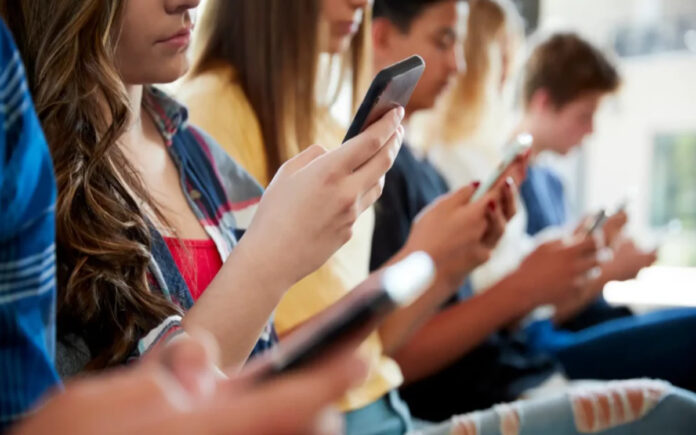Canberra: For Tereza Hussein, a 14-year-old refugee living in Darwin, Australia’s proposed social media ban would sever her connection to her grandmother, whom she has never met in person. “It’s the only way I’ve ever connected to my grandma before, over socials,” said Hussein, who was born in the Democratic Republic of Congo and spent time in a refugee camp in Malawi before settling in Australia at nine. “It’s going to have a very big change in my life because it’s going to be hard for me to talk to the people that I’ve left behind,” she added.
While Hussein rarely posts on social media, she primarily uses Meta’s Instagram and Snapchat to view and discuss photos and videos shared by family and friends. She represents a blind spot in the Australian government’s plan to impose an age minimum for social media access, which is intended to combat bullying, predatory grooming, and mental health issues.
Experts warn that such an age restriction could isolate teenagers from migrant, LGBTQIA+, and other minority backgrounds, cutting off vital social support. Surveys show that 97% of Australian teenagers use social media across an average of four platforms, making them some of the most connected youth globally. A 2024 survey by youth service ReachOut revealed that nearly two-thirds of parents express concerns about their children’s social media usage.
“The ban is pretty much the opposite of what we would recommend,” said Amelia Johns, an associate professor of digital media at the University of Technology, Sydney, who studied the social media habits of migrant teens during the COVID-19 lockdowns. “Everyone is living in social media. For a lot of young people, it’s not an option to opt out, and I do wonder about the mental health consequences of a complete blanket ban.”
No country has yet implemented an age-based ban on internet platforms. While France and Britain have tested age verification methods, they have not enacted a ban, and some U.S. states require age verification for restricted content. Australia plans to introduce legislation by the end of the year, with officials suggesting an age limit of around 14 to 16.
“If I lost social media, it would make me feel a lot more isolated,” said Ben Kioko, a 14-year-old from Sydney who identifies as autistic and part of the LGBTQIA+ community. “Since I struggle with mental health issues like anxiety and depression, it would make those a lot worse than they already are and could really affect my life long-term,” he added.
Prime Minister Anthony Albanese is a key supporter of the ban. “Parents want their kids off their phones and on the footy field, so do I,” he stated in September. A spokesperson for Albanese did not respond to Reuters’ request for comment.
Justine Humphry, a media researcher at the University of Sydney who has developed an online safety program, criticized the outright ban, arguing that it reflects a “nostalgia” for a childhood without screens—a notion she calls “fiction.” Meta, which owns Facebook and WhatsApp, declined to comment but has stated it supports protecting young users from harmful content. The company has recently enhanced privacy settings for Instagram users under 18 and requires parental approval for users under 16 to adjust these settings.
Alphabet, the owner of YouTube, one of the most popular platforms among teenagers, also declined to comment but has noted it offers features for parental oversight of children’s usage.
Also Read | Goodbye Android, Hello HarmonyOS: Huawei’s Latest Smartphones Transition to New OS
Workarounds and Challenges
Efforts to enforce age restrictions have largely failed due to users’ access to virtual private networks (VPNs) that mask their locations and identities. A report by former judge Robert French, commissioned by South Australia to support its separate plan for a teen social media ban, noted that “there will undoubtedly be workarounds by knowledgeable child users.”
A 2022 age verification trial in France, which seeks to restrict social media access to those aged 15 and older, found that nearly half of the country’s teenagers could bypass restrictions using VPNs, according to Olivier Blazy, a computer scientist at Paris’s École Polytechnique who worked on the project. Antonio Cesarano, a product manager for Proton VPN, stated that customer numbers typically surge when restrictions are introduced.
Also Read | JUNO: The Lab That Could Crack the Neutrino Code
After YouTube began asking users for identification to access age-restricted content in 2021, a developer known as ZerodyOne created software to help users bypass these restrictions. This tool has been downloaded about 2.5 million times, according to data shared by ZerodyOne, who identified himself only as David.
Sydney high school student Enie Lam, 16, shared her experience using a VPN to circumvent her school’s Wi-Fi restrictions for research purposes. “I understand that using social media a lot is not a good thing, and I’m working on it,” she said. “But a ban is not going to work.”



